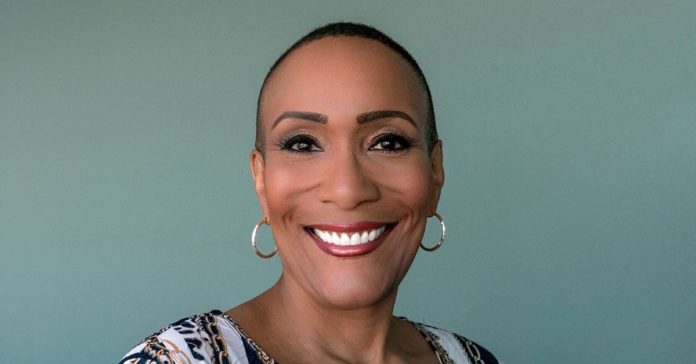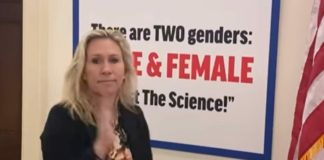
Elisa Vega-Burns, E87, grew up on welfare in a housing project in Brockton, Massachusetts. A path of “angels” pushed her life in an extraordinary direction. The first in her family to graduate from college, Vega-Burns earned a bachelor’s in electrical engineering and is a strategy lead at Dell, where she has worked since 2000. Here she reflects on the people who helped her along the way.
My childhood was extremely difficult. My father abandoned us when I was 5. My mother was diagnosed with a mental illness. So what was instrumental in my success were individual moments when people came out of nowhere and favorably impacted my life.
When I was 6, I had a Big Sister who would bring me onto her campus at Stonehill College, about 13 miles from where I lived. She and her friends took me to classes and played games with me in their dorm room. They were young white women, and they were so sweet to me, this young, Black kid from the projects. I think they were a bit fascinated with me because I was a smart kid, very precocious. I learned to read at 3. I could have adult conversations. I told them: “I’m in first grade. I’m going to college like you in 12 years.”
With them, I did not feel different in any way or unaccepted. I had never experienced that because I was bullied a lot as a kid. I was called names because I was too smart, too fat, or too Black; I was spat on and physically abused. To be around people whom I didn’t know who were supportive and loving, that was new.
When I was in the third grade and visiting a food pantry with my mother, I had a conversation with a nun who later said to my mom, “Your child is gifted.” That nun got us in contact with someone who tested and then admitted me to a gifted program in the Brockton public school system, where I remained until high school.
In my junior year of high school, my guidance counselor, a white male, asked, “What would you like to be?” I said, “I think I want to be a hairdresser or an occupational therapist.” He said, “You’re bigger than that. You’re at the top of your class with high grades in math and science.” He gave me a book on all different types of engineering and said, “I think you could be an engineer.” I brought the book home and read it, cover to cover. I came back and told him, “I think I’d like to be an electrical engineer.”
He told me I should apply to Tufts. He helped me apply for scholarships. With all the scholarships I got, I never had to take out loans for college. I regret that I never thanked him and can’t even remember his name!
Elisa Vega-Burns, E87, remembers Allan Clemow, E65, giving her an engineering kit worth $100 when she arrived at Tufts and saying, “You need this. I want you to be successful.” Here she sits with Horner Williams, A87, A19P, A22P, A25P, and Valerie Bolling, J87, right, in her first Tufts dorm room in 1983. Photo: Courtesy of Elisa Vega-Burns
This kind of thing continued to happen at Tufts, from the moment I stepped on campus for my interview with Allan Clemow, E65, an assistant professor of engineering design and assistant director of undergraduate admissions. After move-in my first semester, I went to let him know I had arrived. He said, “I know from your application the difficulty you’ve experienced.” Then he handed me an engineering kit, which was worth $100 at the time. That was expensive in 1983 (nearly $300 today)! Allan said, “You need this. I want you to be successful.”
My advisor, Denis Fermental, E58, J91P, AG91P, was an institution in engineering. He spent his entire career at Tufts. My first year, I told him, “I’m going to drop out of the engineering program. I just don’t think I have what it takes. In class, this guy is speaking, that guy is speaking. I do the work. I don’t come up with the same answers.” He said, “Show me your answers.” I did. He said, “Your answers are correct. Just because they’re speaking the loudest doesn’t mean they’re the smartest.” It was a very valuable lesson that sustains me to this day.
Professor Fermental was a very funny guy and helped me to not take things people said so seriously. I learned early about being a young Black female engineer around older white males. Interacting with him taught me how to banter and provide light relief in a stressful situation.
His advice came in handy during my first job interview at Raytheon. At that time, companies were just beginning to focus on diversity. I’m a big woman. In heels, I’m nearly six feet, and I was 100 pounds heavier than I am today. The guy interviewing me walks in—he was ex-military, maybe 6’7″—and stands a bit too close to me for my liking. However, I was just so relieved to be interviewed by someone bigger than me. With a wide smile, I looked him in the eye and asked in a joking manner, “Are you trying to intimidate me? Why are you standing so close to me?” We both laughed. I ended up working for him. He became like a father figure to me.
Elisa Vega-Burns, E87, says her wife, Gemma Burns, reminds her, “There is always someone in this world who will be more different than you. Focus on how you can make a difference in someone’s life.” Photo: Courtesy of Elisa Vega-Burns
At Tufts, so many people enveloped me with support and love, pointing me in the right direction. My interactions with the friends I made taught me something new every day. A woman at the Career Center told me, “The first thing you should do as a young person is get a financial planner. What do you want your life to be like when you’re 52?”
I was 21 and couldn’t even fathom being 52. However, I immediately got a financial planner. He said, “Visualize what you want your life to be like.” All I said was, “I don’t want to be homeless or hungry. I want security. I don’t want to be afraid all the time.” He has been my financial planner my entire career; he just recently retired. Another angel.
My wife of 18 years is my rock and the most special of my angels. She smiles all the time and taught me that smiling creates a positive vibe to which others are drawn. Whenever I feel so very different for being a Black, gay woman, I think of my wife who is a Black, gay woman with albinism and has said to me on multiple occasions, “There is always someone in this world who will be more different than you. Focus on how you can make a difference in someone’s life.”
As a result, I am always looking for opportunities to positively impact the lives of others. I have gone back to my high school and to Tufts. I speak about the many ways that Tufts opened up a new world for me. At Dell, I mentor a lot of young people and women of color. I tell them, “You don’t have to carry negative feedback or negative experiences like baggage. I know that thing was really painful, but instead of living with the experience, you can learn from it and move forward.”
—As told to Jamie Saxon








